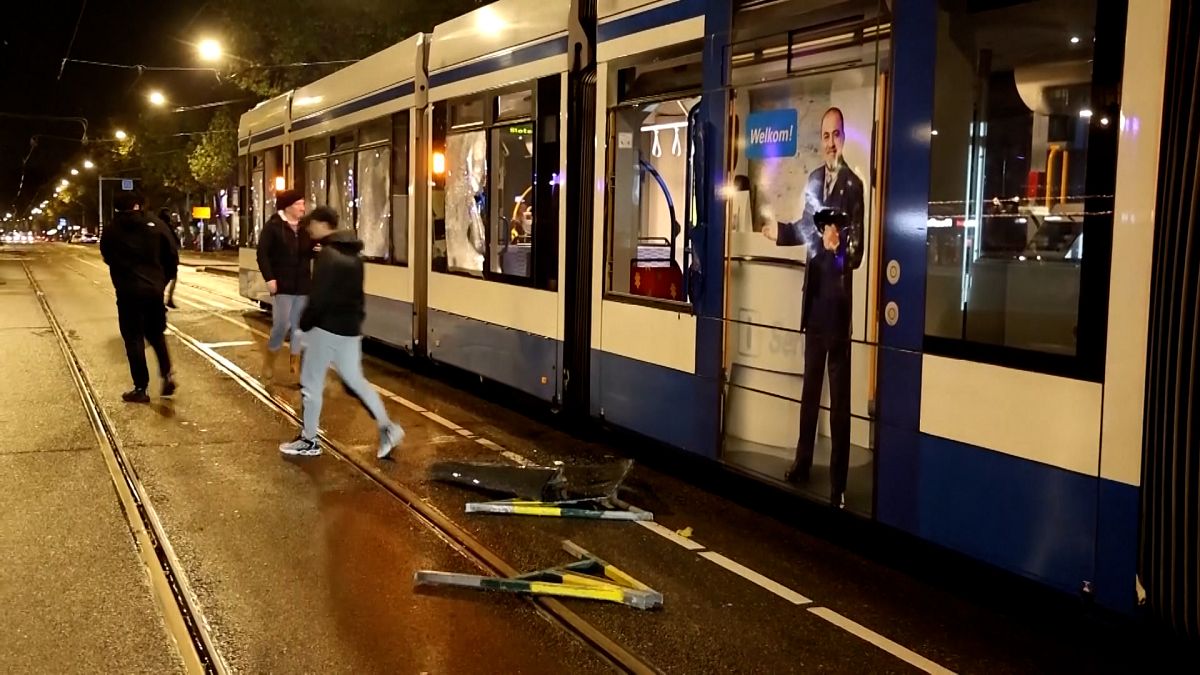Tensions have reached a boiling point in Amsterdam following violent clashes that erupted after a football match between Maccabi Tel Aviv and Ajax Amsterdam. The situation escalated when a tram was set on fire, reportedly by individuals armed with sticks and firecrackers. The clashes primarily involved youths targeting Israeli fans, leading to several arrests. These incidents are part of a larger wave of rising antisemitism across Europe, which has been linked to the ongoing conflict in Gaza. To maintain order, Amsterdam’s mayor has taken decisive action by banning all demonstrations and designating certain areas of the city as risk zones, allowing police to conduct random checks.
The unrest in Amsterdam underscores the deep-rooted tensions surrounding the Israeli-Palestinian conflict, which often spill over into violence and discrimination. The clashes between fans of Maccabi Tel Aviv and Ajax Amsterdam have highlighted the fragility of intergroup relations in the city and beyond. The targeting of Israeli fans by an unruly mob is a troubling manifestation of antisemitism that has been on the rise in Europe in recent years. Such incidents not only pose a threat to public safety but also perpetuate harmful stereotypes and perpetuate divisions within society.
The response from Amsterdam’s authorities reflects a commitment to maintaining public order and ensuring the safety of all residents and visitors. By banning demonstrations and implementing random checks in risk zones, the mayor has sent a clear signal that violence and discrimination will not be tolerated in the city. These measures are essential to prevent further escalation of tensions and to address the underlying issues that have fueled the recent unrest. It is crucial for authorities to address the root causes of antisemitism and xenophobia through education, dialogue, and community engagement to promote tolerance and understanding.
The situation in Amsterdam serves as a stark reminder of the need for continued efforts to combat hate speech, discrimination, and violence against marginalized communities. The rise in antisemitic incidents across Europe, including the recent clashes in Amsterdam, underscores the urgent need for proactive measures to address prejudice and intolerance. Governments, civil society organizations, and individuals must work together to promote a culture of respect, inclusion, and mutual understanding. By standing against hate in all its forms and promoting solidarity among diverse communities, we can build a more just and peaceful society for all.
As the world watches the events unfolding in Amsterdam, it is crucial for global leaders to condemn acts of violence, discrimination, and hate speech. The international community must stand united in combating antisemitism and all forms of intolerance, wherever they occur. By working together to promote dialogue, understanding, and respect, we can build a more equitable and harmonious world for future generations. Let us use the recent events in Amsterdam as a catalyst for positive change, and commit ourselves to creating a society that values diversity, empathy, and justice for all. Together, we can build a world where peace and inclusivity prevail over hatred and division.











